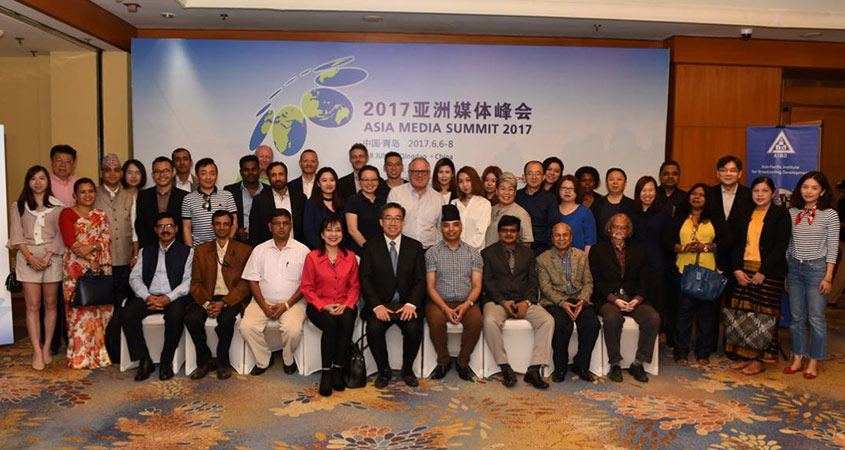The Asia-Pacific Institute for Broadcasting Development (AIBD) and Radiodays Europe/RCS Pre-summit workshop on “A Sound Future-Creating Engaging Content on all Platforms” A winning strategy for radio stations must consider the listener, brand. Content and promotion.
They must learn to understand and love their listeners who, after all, decide the shape of their brand. “ Everything a radio station does in the air must be entertaining, useful, interesting to their listeners, and connecting to their heart, head and hand,” says Francis Currie, international radio consultant, trainer and coach, UK.
Mr Currie spoke at the AIBD/Radiodays Europe/RCS Presummit workshop on “A Sound Future-Creating Engaging Content on all Platforms, held on 5 June 2017 in Qingdao, China. Some 31 participants from 16 countries in Asia-Pacific and Africa attended the workshop.
In his presentation, he emphasised that in the radio world, the hero is the listener and effective content can only be produced if you know who it is intended for.
“The brand is inside the listener, and the job of content people is to make sure they create the right feeling in their target listeners. Successful criteria for a brand requires that it be legitimate, relevant, distinctive and consistent,” he said.
if you’re designing a brand, Currie suggested to ask what should people think and feel about your radio station. He also said to talk to the listeners on air, and through marketing, sponsorships, events, social media and calls.
On the product, he cited radio’s four building blocks, namely; music, personalities, entertainment and information.
“ Music is premium content,” he said, and listeners must love the music a radio station plays.
He added that choosing the wrong music and the presenter talking too much will produce a disconnect between the station and its audience.
Francis Currie also urged radio stations to follow the principle that emotion beats logic. Engaging emotionally with the listener is important for the brand and the presenters.
He also cited the importance of preparation and planning for good content and effective presenters.
In constructing content, he identified four key factors. These are the tease that stimulates, engages and challenges; the hook that cuts through the clutter and grabs the listener’s attention; the main content that brings to life a simple story, uses sensory language and active verbs; and pay off or end of the content that should have high impact, a punch line and call to action.
A Microsoft study finds the average human attention span is now 7 seconds and it is important, for radio stations, Francis Currie said, to work hard on these factors to keep their loyal listeners and attract new ones.
He added that adding value to the content requires creativity, which he describes as the secret sauce of compelling content
“One thing about creativity is that if you want different output get different input, “ he said. Content producers must get out of their routines to get new stimulation in life that can engender new and fresh conten
Finally, Mr Currie stressed the power of promoting the radio station and its programmes. Most listeners miss most of what radio stations do most of the time, he said, and it is important that programmes are recycled, reversed, repurposed and re-promoted to enhance their reach and popularity.
BNNRC@AIBD Asia Media Summit 2017
